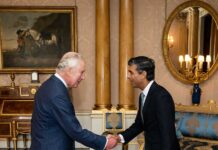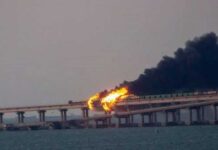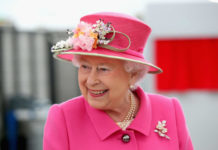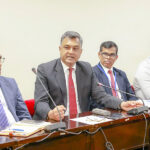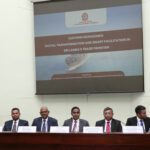BBC News- Princess Latifa, the captive daughter of Dubai’s ruler, has appealed to UK police to re-investigate the kidnap of her older sister from a Cambridge street more than 20 years ago.
In a letter shared with the BBC, Latifa tells Cambridgeshire police this could help free Princess Shamsa, who was captured on the orders of their father.
Shamsa, who was just 18 then and is now 39, has not been seen in public since.
The government of Dubai has not responded to BBC requests for comment.
A High Court judge ruled in 2019, that Sheikh Mohammed bin Rashid al Maktoum had abducted both daughters and held them against their will.
Last week BBC Panorama broadcast shocking videos Latifa had secretly recorded on a phone she had been given, in which she described how she was being held “hostage” by her father following a failed escape attempt in 2018. The UN has since asked the United Arab Emirates for proof that Latifa is alive.
In August 2000, around two months after escaping from her father’s Longcross Estate in Surrey, Shamsa was forcibly taken from Cambridge, flown by helicopter to France and then by private jet back to Dubai.
Latifa’s handwritten letter, which was passed to the Cambridgeshire force by her friends on Wednesday, urges action for her sister by British authorities. It was written in 2019 while she was being held in solitary confinement in a “jail villa”.
“All I ask of you”, writes Latifa, “is to please give attention on her case because it could get her her freedom… your help and attention on her case could free her.”
She adds: “She has strong links to England… she really loves England, all of her fondest memories are of her time there.”
Latifa dated the letter February 2018, before her escape attempt, to avoid revealing that she had a way of communicating with the outside world from captivity. It paints a chilling picture of her sister’s fate after she was returned to Dubai.
“She was kept incommunicado with no release date, trial or charge. She was tortured by getting her feet caned…”
Cambridgeshire police first launched a kidnap investigation in 2001 after Shamsa made contact via an immigration lawyer. But the investigation eventually hit a dead end when officers were blocked from going to Dubai.
It later emerged that aides acting for the sheikh had made representations to the Foreign Office around the time of the investigation.
Police reviewed the investigation in 2018, and BBC News can now reveal that one investigator acknowledged there were “significant sensitivities” with the case.
A further review was launched after the High Court judgment was published in 2020.
In a statement to BBC News, Cambridgeshire Police said it had received Latifa’s letter, which “will be looked at as part of the ongoing review”.
The statement added: “This is a very complex and serious matter and as such there are details of the case that it would be inappropriate to discuss publicly.”
The Foreign Office, which has previously faced questions over its response in the wake of representations from a powerful state ally, told the BBC this was a private matter between two individuals and it had no role in the investigation by Cambridgeshire Constabulary or its outcome.
They also declined to comment on contact from the sheikh’s office regarding the case.
After the footage of Princess Latifa emerged, Foreign Secretary Dominic Raab said the footage was “deeply troubling” and that the UK would “watch very closely developments on that front”.
In 2018, the Dubai Royal Court told the BBC that Shamsa was “adored and cherished”.
The sheikh’s only statement on the case has been to the High Court, and speaks of “relief” at having found his “vulnerable” daughter Shamsa after she went missing.
Shamsa’s story prefigured what happened to Latifa 18 years later and played a key role in her decision to seek a new life abroad. It led directly to her failed escape on a boat in the Indian Ocean. In a video posted to YouTube before her attempt to escape in 2018 Latifa describes what happened to her sister and its severe repercussions.
BBC News has also spoken to someone who had regular contact with Shamsa in Dubai: “You didn’t need to be a doctor to know that [she] was tranquilised all the time.”
Courtesy: bbc.com/news




